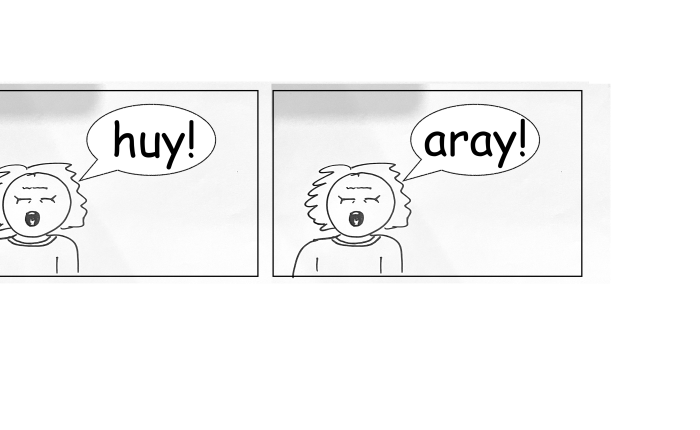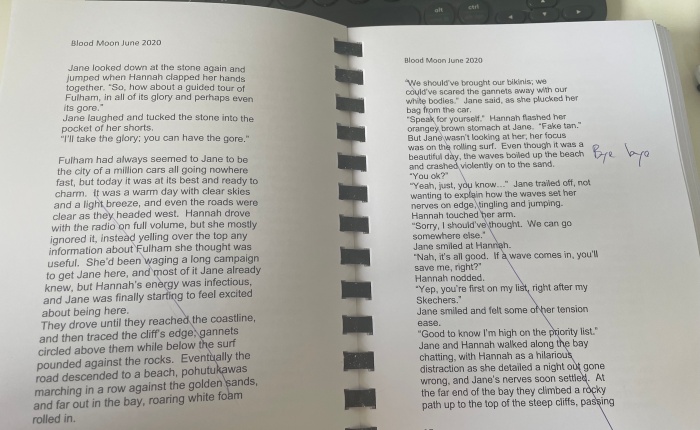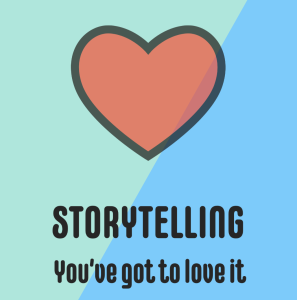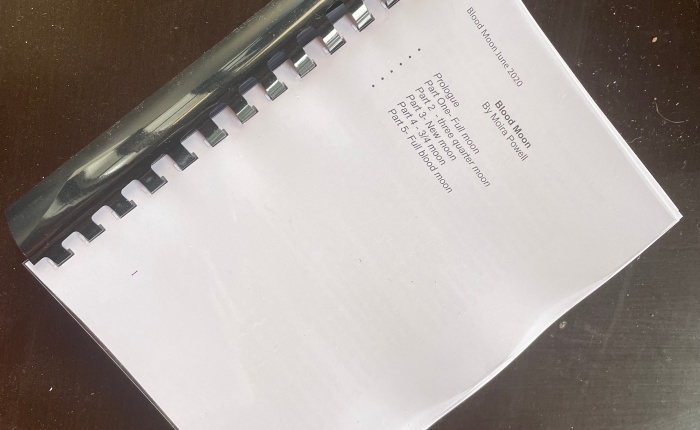Do you know? I have no idea, I’ve never even had a short story published!
Thankfully I actually know someone who is the process of having her first collection of short stories published. Like by a publishing company. Like I’ve actually met her in person. I know. It’s like finding a unicorn.
Sally Franicevich, a long time short story publisher and emerging novelist, had this to say about the process:
“When a friend asked me for advice on how to get published I found it hard to think of what to say. I found it hard to think at all. I am in a period of my life I think of as my happy hiatus. A sort of drifty, boneless time.
Last year, I’d signed a contract with a publisher. My book was pretty much finished. The only work that still needed to be done to it needed to be done by someone else, someone who could spot the typos that I’d looked at already a hundred times and not been able to see.
So, my book was finished and accepted by a publisher but not a single bad review had yet been written nor a word said of mockery or criticism. I had not even had to experience an absence of notice. My ignorance of tenses or what it meant to “split” a sentence – though not apparently how to split one – was only known to a few. I had received the encouragement of teacher and supervisor during my Masters year. Even my partner “liked” the stories she’d read and had found – so far – only a moderate number of typos.
A Happy Hiatus is not the best time to ask for a truthful account of what went before. All is calm, all is bright. Crucifixion is yet to come. However, even during an HH, some facts about me and my writing life do jump out.
One is, that I’m 63. People like me are the reason no one talks about “young”writers anymore when they mean “new”. Instead, they use the term “ emerging”. I’m a new writer but an old person.
There are some advantages to this. Young/new writers sometimes claim to find themselves short of material to write about. I’ve not personally actually known any young writers who claim this. The young writers I know – and I’m blessed to know a few – find material everywhere, but nevertheless, I’ve heard this claimed by some.
By contrast, when you are old, you have nothing but material. You are full of stories. You have stories up to your eyeballs. Stories fall out of you all over the place. Everything reminds you of something which reminds you of something else. Which reminds you of something you were told which simply beggars belief. Or buggars belief as an ex-serviceman I knew used to say. Which reminds me that he also used to say: “ if I was any lower, you’d have to jack me up to bury me.” Which also reminds me of the time….
You see where I’m going with this.
Back to my experience of seeking publication. Email was the big thing for me. And discovering the range and diversity of overseas publications I could submit to. When I found that I could – very quietly and very privately – send stories overseas to publications that published digitally, that was a breakthrough.
The first one I sent – this was in 2001 or so – to a North American publication called Moondance, was accepted. The Editor wrote to me: keep on writing fiction! I love that Editor – whoever she was – and always will.
It may have been my grandmother’s birthday or it may have been the anniversary of her death because that day I drove out to West Auckland after work and put flowers on her grave at Waikumete cemetery. I was very happy and wanted to share it and she was the only member of my family in town at that time.
I carried on carefully crafting and re-crafting (and re-crafting and re-crafting) a small cache of stories and searching out publications where they might be accepted. I particularly favoured submitting stories to competitions because of the long- listing and short-listing process. Competitions seemed to me to be kind of long-distance tutorial. Some of the Judges – the final judges, not the ones who laboured through the first cut – were fine writers whose opinion I very much valued.
I found these competitions by Googling “short story competitions”. Some websites have great big lists of them with all the closing dates set out for you.
I kind of enjoyed the process of submitting to competitions. It was exciting. The other writers I was up against came from all the over the world. The competition deadlines gave me hard goals to work towards, the chunky this must be done by this date structure helped me.
I hedged against disappointment by trying to always have something “out there” entered for some competition or another so after a failure, there was already something else to hope for; a sort of revolving cycle of effort and anticipation.
I had some success. I won one competition. I was shortlisted for another. But none of this meant I was published in the way most people mean when they say someone is “published”. What they mean is someone who has had a book all of their own published and I hadn’t done that.
By the time I was 60 it seemed like I could afford to work part time for a while. I decided to look for part time work and enrol in a Masters of Creative Writing. Before then, my attitude to doing a writing Masters of Creative Writing was similar to my attitude to beautiful old villas in Herne Bay: bitter envy poorly masked by declarations of a more particular and finer taste. I wouldn’t live there if you paid me! All those range rovers! Yuk! I quickly dropped all that when I realised I could actually afford to enrol in one, just as I would if someone gave me a villa.
My great good luck was being accepted into the right Masters Programme at the right time and – even luckier than that – being allocated by my wonderful teacher, an equally wonderful and generous supervisor.
My year of doing Masters was one of the best of my life. I worked hard on my thesis – a collection of short stories – and did well. But I didn’t win any prizes or anything like that. And when I read the work that did win the prizes in my year, I could see why they had won the prizes and I hadn’t.
I wasn’t at all down hearted. I was happy. My supervisor and my tutor had been very encouraging. I decided I would try a few different avenues for publication – the Laura Solomon Competition was one – and if those failed, I would simply self-publish. I was fine with that prospect. I did want my work “ out there” but I didn’t much care in what form it got out or how. I had other things to write and I wanted to get on with them.
That’s another thing about being old. While there are many things you still care as much about as you did when you were young, there are others that you don’t. I told to people I didn’t care how I got my collections “out there”, and I really didn’t. I was planning to put myself to a small – but sensible – amount of effort to interest traditional publishers but after that I would self-publish and get on with my next project.
My supervisor suggested I send my manuscript to her publisher. She promised to put in a “good word” with the fiction editor but was honest about the chances of success. There could be never be any guarantees, particularly with short stories.
But it worked. The editor liked my collection. The acquisitions’ committee agreed to publish them and that was that. I wrote a few more stories, checked for typos and began my Happy Hiatus.“
– Sally Franicevich
Besides delighting in Sally’s style, the most important point I take from Sally’s experience is that she put herself amongst other writers and, in particular, those that had been published. By knowing someone who had been published she was able to get her manuscript to the top of the pile at a publishing company and then get noticed, something that a lot of writers struggle with.
“Every creative success involves an element of luck, it also involves persistence.” – Dan Brown
Stephen King sent his novel to 80 publishers, J.K. Rowling sent hers to 11, and C.S.Lewis managed a staggering 800 rejections before his first novel was published. That’s persistence right there!
But it doesn’t have to be all hard graft – you can learn from other published authors on how they found their way into print.
Select the right people
“You, as the aspiring writer, wondering how do I find an agent, how do I find the right publisher, how do I find the right people to work with, all you need to do is find a book that you love, a book that’s in the genre you’re writing and look at the acknowledgements. That’s a little treasure trove in every single book that tells you how to market your book.” – Dan Brown
This is great advice, one I plan on using when I get through the gazillionth rewrite and am ready to send it off. By making a list of agents and publishers who have authors of your genre on their books, I think you’re more likely to get traction. That was Stephen King’s idea, and eventually his persistence finally paid off. (In 1973 horror and fantasy genres weren’t considered profitable or noble, but, thanks to his success, you can really see that’s no longer the case whenever you walk into a book store)
How to write a query letter
If you want great advice on publishing, or at least getting noticed, then I’d suggest joining Masterclass just for James Patterson’s lessons. His advice is extremely practical and pragmatic, and will give you plenty of ideas on how to proceed.
This is what he says about getting an agent:
“If you can get an agent, it’s usually important, because the agent is the liaison between you and the publishers. And the agent, their reputation is based on their relationships with publishers and editors, so they’re not going to send out something they don’t believe in.” – James Patterson
And then for your query letter:
“Outline the letter. What are the bullet points? What do you want to accomplish with this letter? What are the selling points for your book? And then, what’s the perfect order for that? The first line, same with when you’re writing the book, it’s got to hook that editor or agent where they’re going, OK I’m hooked right from the get-go here.” – James Patterson
And while getting an agent isn’t the end of the hard graft, it’s a step closer to seeing your book published and available in local book store. As for what happens after that, find another writer. Me, I’m still working on getting my book ready to send out!
FWFFC Round 3 (ding ding!) notice
Wow where did those four weeks go?!? Dog walks, work and the beach just swallowed them whole, but tomorrow I”ll be releasing another fast fiction story idea, so remember:
350 words
1 week
1 idea
Good luck with hunting down those agents and publishers. They’re out there, hiding in plain sight!
























